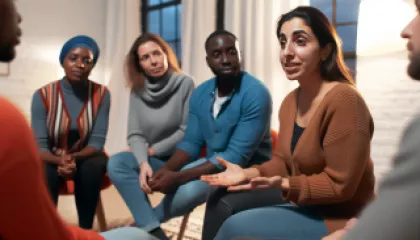Overcoming Bias: A Step-by-Step Guide
Every individual, whether consciously or unconsciously, holds some form of bias. It's an inherent part of human nature that stems from our backgrounds, experiences, and societal influences. These biases can impact our decisions, relationships, and interactions in significant ways. Recognizing and overcoming these biases can lead to more informed decision-making, improved relationships, and a more inclusive society. This article provides a comprehensive step-by-step guide on overcoming bias.
Step 1: Understand What Bias Is
Bias is a prejudice in favor of or against one thing, person, or group compared with another, usually in a way considered to be unfair. Biases can manifest in numerous ways, including race, gender, age, sexuality, religion, and more. They can be explicit, where the individual is aware of their bias, or implicit, where the bias operates subconsciously.
Step 2: Acknowledge That You Have Biases
The first step towards overcoming bias is acknowledging its existence. It's easy to see bias in others but often difficult to recognize it within ourselves. Everyone has biases; they are a natural product of our upbringing, culture, and experiences. Acknowledging your biases doesn't make you a bad person—it makes you self-aware and open to growth.
Step 3: Identify Your Biases
Identifying your biases can be challenging, especially when they are deeply ingrained or subconscious. Self-reflection, mindful observation of your reactions and assumptions, and soliciting feedback from trusted individuals can help uncover your biases. Tools like the Harvard Implicit Association Test can also provide insight into your subconscious biases.
Step 4: Educate Yourself
Educating yourself about different cultures, perspectives, and experiences can help dismantle biases. Seek out books, articles, documentaries, and other resources that challenge your beliefs and expose you to diverse viewpoints. Attend workshops or seminars on bias and inclusivity, and engage in discussions with people from different backgrounds.
Step 5: Practice Empathy and Open-Mindedness
Empathy involves understanding and sharing the feelings of others, while open-mindedness involves being receptive to new ideas and perspectives. Both are vital for overcoming bias. Try to put yourself in others' shoes, listen to their experiences, and consider their perspectives before making judgments.
Step 6: Challenge Your Biases
When you notice a bias surfacing, challenge it. Ask yourself why you hold this bias and whether it's based on facts or assumptions. Reflect on how this bias could be influencing your actions and decisions. By questioning your biases, you can begin to dismantle them.
Step 7: Advocate for Fairness and Inclusion
Overcoming bias isn't just a personal journey—it also involves advocating for fairness and inclusion in your circles. Stand up against bias when you see it in others, foster an inclusive environment, and encourage others to challenge their biases.
Conclusion
Overcoming bias is a continuous process that requires self-awareness, education, empathy, and action. It's not easy, but it's crucial for personal growth and societal progress. Remember, it's okay to make mistakes along the way—the important thing is to learn from them and continue striving for understanding and inclusivity.
By following this step-by-step guide, you're not only working towards overcoming your biases but also contributing to a more fair and inclusive society. So, take the first step today, acknowledge your biases, and commit to overcoming them. The journey may be challenging, but the rewards are well worth it.








